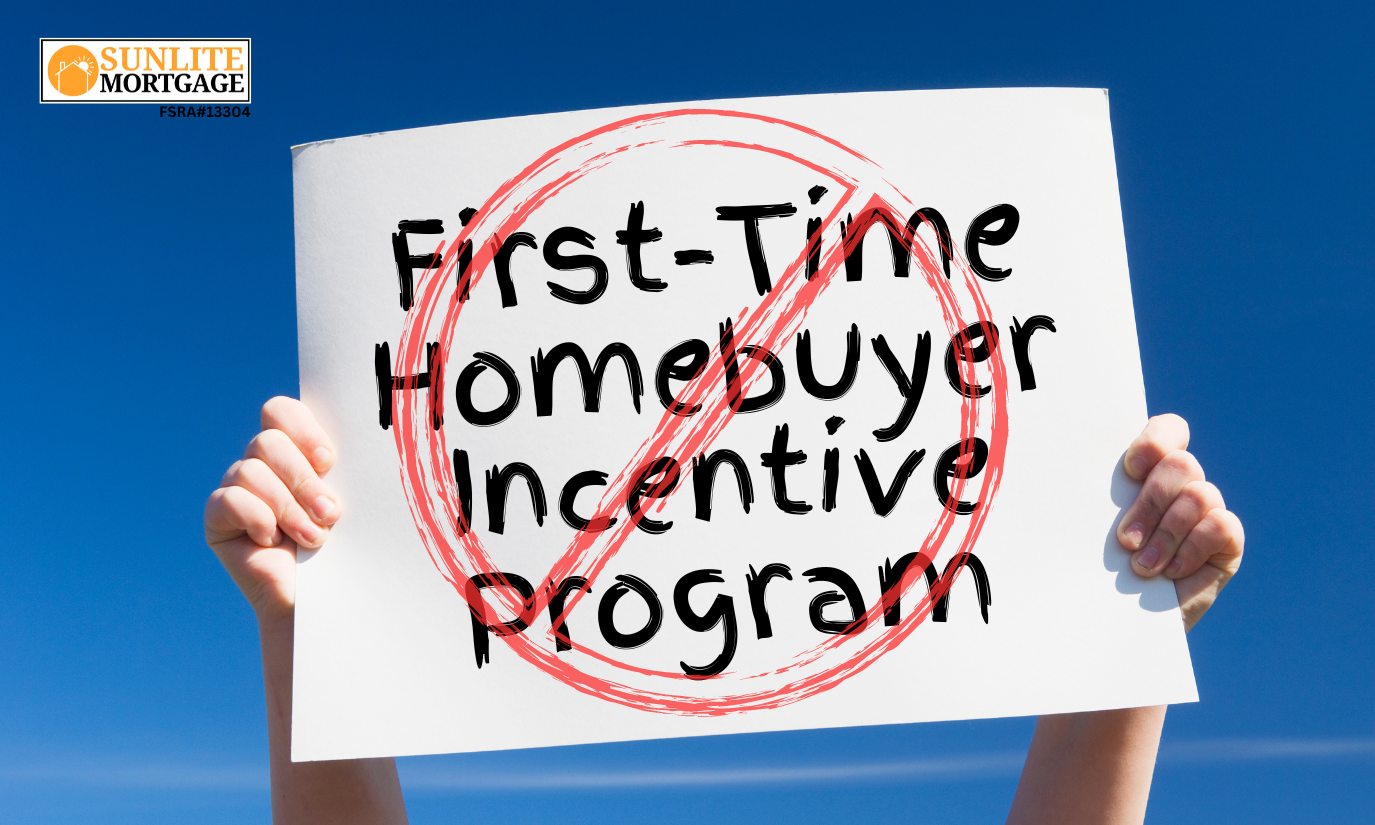


The deadline for new or updated submissions for the First-Time Home Buyer Incentive is midnight ET on March 21, 2024.
For new and resubmitted First-Time Home Buyer Incentive applications:
All new applications and resubmissions for previously cancelled or declined applications must reach the Program Administrator by March 21, 2024 (midnight ET).
In cases where an application was previously cancelled or declined, it must be resubmitted and received by the Program Administrator before the March 21, 2024 (midnight ET) deadline.
If an application is submitted on or before the March 21, 2024, deadline (midnight ET) and is declined due to an application error, the mortgage loan insurer is responsible for rectifying the issue and resubmitting the application.
Applications resubmitted after March 21, 2024 must undergo a manual review. Requests for such reviews must be submitted no later than March 25, 2024 (midnight ET).
The Program Administrator will process applications received before the deadlines promptly. No new approvals will be granted after March 31, 2024.
For approved applications The Program Administrator will continue to consider post-approval changes, following the guidance outlined in the Operational Policy Manual (PDF) available on the Place to Call Home website (refer to section 6.3).
Click here to see the CMHC Bulletin
Here is our original post about this program:
The First-Time Home Buyer Incentive (the Incentive) helps qualified first-time home buyers reduce their monthly mortgage carrying costs without adding to their financial burdens.
You need to have the minimum down payment to be eligible. You can then apply for a 5% or 10% shared equity mortgage with the Government of Canada. Your maximum qualifying income is no more than $120,000 and your total borrowing is limited to 4 times the qualifying income. The Incentive has an equity-like payout, where the government would share in the upside and downside of the property value.
The First-Time Home Buyer Incentive launches September 2, 2019*.
* Barring any unforeseen circumstances the program will launch on September 2, 2019. The first closing will take effect on November 1, 2019.
How does it work?
The Incentive enables first-time homebuyers to reduce their monthly mortgage payment without increasing their down payment. The Incentive is not interest bearing and does not require ongoing repayments.
Through the First-Time Home Buyer Incentive, the Government of Canada will offer:
• 5% of a first-time buyer’s down payment for the purchase of a re-sale home
• 5% or 10% of a first-time buyer’s down payment for the purchase of a new construction
How do I know how much I have to pay back?
You can repay the Incentive at any time without a pre-payment penalty. You have to repay the Incentive after 25 years or if the property is sold. The repayment of the Incentive is based on the property’s fair market value:
• By changing the terms of your mortgage loan you can help you maximize your monthly cash flow.
• Use of Refinance Calculator tool to see how a refinance could save you money monthly and over the life of the loan.
Note: If your property value goes down, you are still responsible for repaying the shared equity mortgage based on the current home value at time of repayment.
Incentive by Property Type
New Construction = 5% or 10%
Existing Home = 5%
New or re-sale mobile/manufactured home = 5%
Funding Available
The First-Time Home Buyer Incentive works on a first-come-first-serve basis. The total amount of funding will be $1.25 billion over 3 years.
Who can apply?
• Canadian citizens, permanent residents, and non-permanent residents who are legally authorized to work in Canada
• Borrowers must have a maximum qualifying income of $120,000
o Total qualifying income cannot exceed $120,000 per year
o This is subject to qualifying income requirements set out by lenders and mortgage loan insurers
o At least one borrower must be a first-time homebuyer, as per the definition below.
Are you a first-time homebuyer?
How does the 4-year period work?
Are there other mortgage details?
Is Mortgage Loan Insurance required?
What are the down payment requirements?
What properties are eligible?
The Incentive is to help first-time home buyers purchase their first home. Eligible properties include:
o 1 to 4 unit residential properties which includes
o new construction
o re-sale home
o new and re-sale mobile/manufactured homes
o The property must be located in Canada and must be suitable and available for full-time, year-round occupancy.
What are the terms of repayment?
o The first-time homebuyer will be required to repay the Incentive amount after 25 years or when the property is sold, whichever comes first. The homebuyer can also choose to repay the Incentive in full at any time, without a pre-payment penalty.
How is repayment calculated?
o If a home buyer receives a 5% (or 10%) Incentive, he would repay 5% (or 10%) of the home’s value at repayment.
o Repayment is based on the property’s fair market value.
Let’s look at a specific situation:
Anita wants to buy a new home for $400,000.
Under the First-Time Home Buyer Incentive, Anita can apply to receive $40,000 in a shared equity mortgage (10% of the cost of a new home) through the program. This is on top of the minimum required down payment of $20,000 (5% of the purchase price) from her savings.
This lowers the amount she needs to borrow and reduces her monthly expenses.
As a result, Anita’s mortgage is $228 less a month or $2,736 a year.
Years later, Anita has sold her first home for $420,000. At this time, she would now have to repay the original incentive she received as a percentage of her home’s current value. This would result in Anita repaying 10%, or $42,000 at the time of selling her house.
* This example is for illustrative purposes only. All property values and home prices used in this example are not an indicator on how property values are forecasted.
Here’s another situation:
John Ying has an annual income of $83,125.
To be eligible for Canada’s First-Time Home Buyer Incentive, he can purchase a home up to $350,000. John still has the required minimum down payment of 5% of the purchase price, $17,500 from his savings. He can receive $35,000 in a shared equity mortgage — 10% of a newly constructed home.
This would reduce John’s mortgage payments by $200 a month or $2,401 a year.
Years later, John has to decided to sell his home, but it is now worth $320,000. When he sells his house at the price of $320,000, John will have to repay the original incentive he received as a percentage of his home’s current value. This would result in John repaying 10%, or $32,000 at the time of selling his house.
* This example is for illustrative purposes only. All property values and home prices used in this example are not an indicator on how property values are forecasted.
Knowing what to expect throughout the entire homebuying process can lead to more well-informed decisions, and a better homebuying experience overall.
Check out all of our homebuying tools and resources to help you make your homebuying decisions with confidence.
Guides
• The Ultimate Guide for Home Buyers – Find everything you need to help you buy a home in Canada.
Calculators
• Purchase Calculator – Use this calculator to generate an amortization schedule for your current mortgage. Quickly see how much interest you will pay, and your principal balances. You can even determine the impact of any principal prepayments!
• Rent vs. Buy Calculator – Should you rent or should you buy your home? It takes more than looking at your mortgage payment to answer this question.
• Maximum Mortgage Calculator – What is your maximum mortgage? That largely depends on your income and current monthly debt payments. This calculator collects these important variables and determines your maximum monthly housing payment and the resulting mortgage amount.
Other useful information
• Understanding Your Credit Report – Learn more about the simple steps you can take to maintain a good credit history and improve your chances of being approved for a mortgage.
• Mortgage Planning Tips – See how planning your mortgage in advance can help you save money in the long run.
• Mortgage Fraud – Read these valuable insights that can help protect you from mortgage fraud.
To learn more, or to get pre-approved, fill out this form and we will get in touch with you: